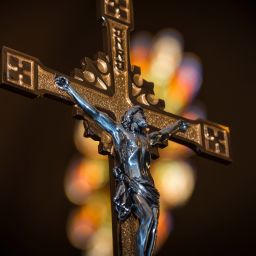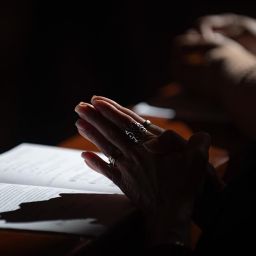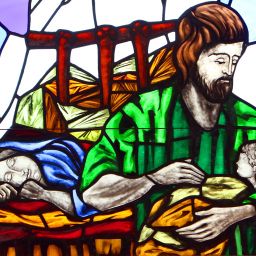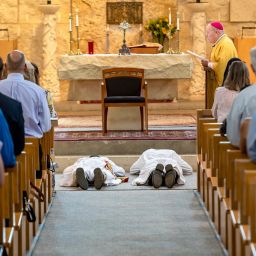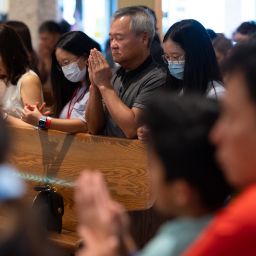By Father Thomas Esposito, O. Cist.
Special to The Texas Catholic
God has a will. This simple fact is quite extraordinary. It informs us that the God revealed by and in Jesus Christ is neither the impersonal laws of nature nor blind fate, characterized often as the random “wheel of fortune.” We cannot automatically say that “whatever happened, good or bad, must have been God’s will.” Death, disobedience, and sin are not part of the original divine plan, and yet they are manifest facts of human life. How, then, is the divine will to be done by me or any other weak-willed man or woman dwelling in the valley of the shadow of death?
A second simple fact builds on the first: We learn the will of God through the words and actions of God. We have no access to the eternal mysteries unless God grants us access. And that insight brings us to Jesus, the giver and revealer of the petition “Thy will be done” in the Our Father prayer.
The earthly ministry of Jesus reminds us that God is not a laissez-faire clockmaker who is remote and even careless about His creation. In response to the fact of sin and death introduced by selfish man and woman, God orchestrates a dramatic victory. Through the very humanity that brought sin and death into the world, God restores to humanity the possibility of communion with Him. He refuses to allow the evil one the ultimate triumph of defeating us. The depths of His fatherly love are exposed radically in the incarnation and death of the Son, who affirms, “I came down from heaven not to do my own will, but the will of the One who sent me” (John 6:38).
A third simple fact further specifies the previous two: We learn the will of God through the words and actions of Jesus. Note the clear allusion to the Our Father prayer in Jesus’ anguished petition during His garden agony: “My Father, if it is possible, let this cup pass from me; yet not as I will, but as you will” (Matthew 26:39). Jesus accepts and reveals the Father’s will through His passion; on the cross, He unifies the domains of heaven and earth that had been cleaved in two by sin.
A beautiful stained-glass window in the chapel of our Cistercian Preparatory School illustrates this point. The cross forms the central axis of the window, which represents the entirety of the created order; above the crucified Lord is the celestial sphere, and below is the realm of animals and human beings. All creatures in the window are united in the posture of genuflecting (except for the fish, who do not have knees); angels, Mary and John at the foot of the cross, and even the deer and lambs in the foreground acknowledge that Christ is the Lord whose obedience unto death has renewed the created order. The window is a visual depiction of Saint Paul’s lyrical praise of the humble and self-emptying Christ: “God greatly exalted Him and bestowed on Him the name that is above every name, that at the name of Jesus every knee should bend, of those in heaven and on earth and under the earth, and every tongue confess that Jesus Christ is Lord, to the glory of God the Father” (Philippians 2:9-11).
When we pray “Thy will be done,” then we are implicitly expressing to the Father our willingness to extend the shadow of the victorious cross over our deeds, our needs, our desires, our troubled world. Jesus does not need our help in conquering sin and death; He has already accomplished that, and we would not have been able to help anyway. But one beautifully baffling aspect of God’s will is that we are invited to conform our weak wills to Jesus’ perfectly obedient will. God wills, or wants us, to heal the fractures in the hearts, relationships, and situations that are so prone, sadly, to brokenness and selfish destruction.
A final simple fact to conclude: The will of God is simple because God is supremely simple. We are the complicated ego monsters who stupidly sever the bonds of communion with Him and with each other. The angels do not need to pray that the Lord’s will be done in them; their obedient devotion is always assured. No such guarantee exists among mortal men and women; but we have a privileged agency in allowing the Lord’s will to be done in us, on earth, as it is in heaven.
Father Thomas Esposito, O.Cist., is a monk at the Cistercian Abbey of Our Lady of Dallas and teaches in the theology department at the University of Dallas.
Cutline for featured image: A stained-glass window is pictured in the chapel of Cistercian Preparatory School. (Courtesy photo)



